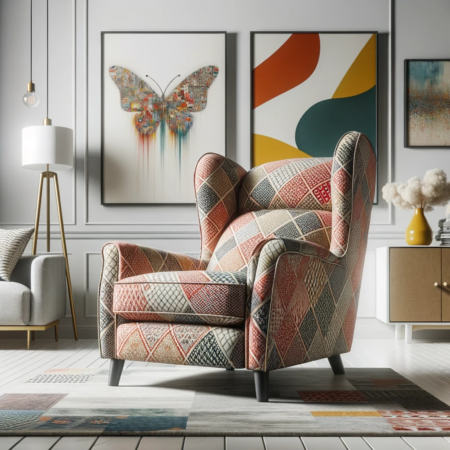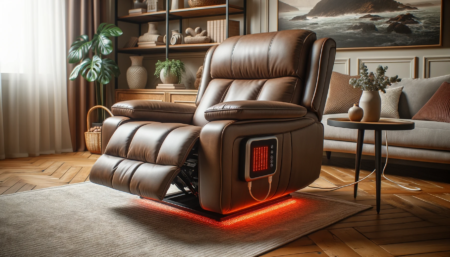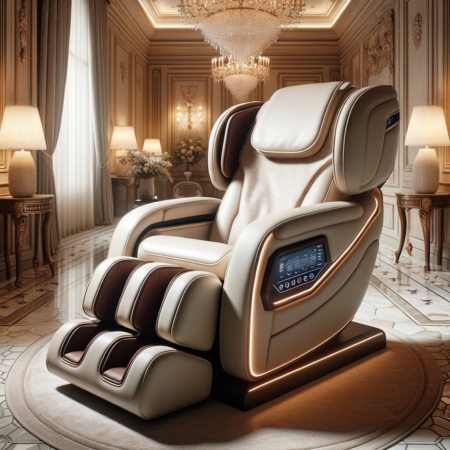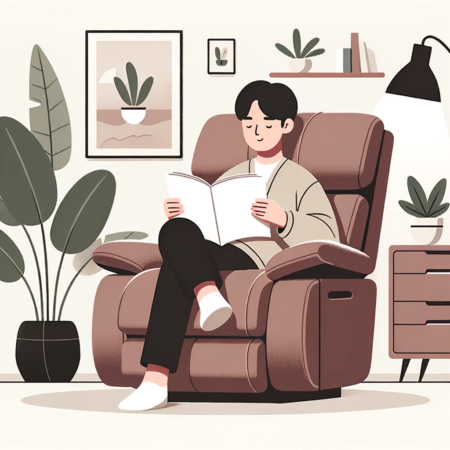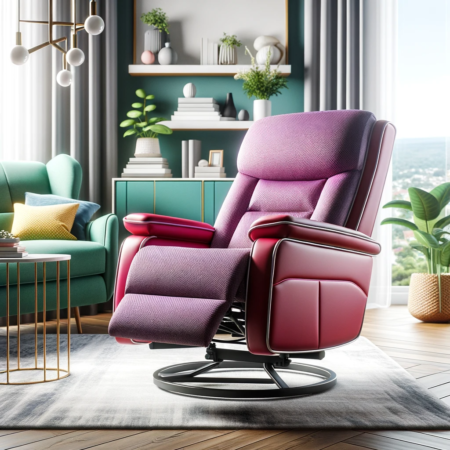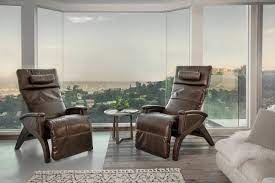Recliner chairs are known for their comfort and convenience. They’re perfect for relaxing after a long day. But did you know that sleeping in a recliner chair can actually be harmful to your health?
We’ll uncover some hidden dangers that may give you pause.
From backaches to circulation problems, and even the risk of falling asleep in less-than-ideal positions, the seemingly innocent act of snoozing in your favourite recliner can come with a price.
Recliner Sleep: The Physical Dangers
Sleeping in a recliner chair may seem like a comfortable and convenient option, but it comes with hidden dangers that many people are unaware of. Here are some of the risks associated with sleeping in a recliner chair:
Neck Pain and Stiffness
When you sleep in a recliner chair, your neck is often in an extended position, which can put strain on your neck muscles and ligaments. This can lead to neck pain and stiffness, especially when you wake up in the morning.
Back Pain
According to orthopedic specialists, sleeping in a recliner may not provide adequate lumbar support. This lack of support can result in back pain and stiffness, especially if you’re spending extended hours in the chair. Recliner chairs can also put your spine in an unnatural position, which can lead to back pain and stiffness.
Poor Circulation
When you sleep in a recliner chair, your legs are often raised above your heart. This can reduce blood flow to your legs and feet. This can lead to poor circulation, which can cause symptoms such as tingling, numbness, and swelling.
Dr. Maria Rodriguez, a vascular specialist, warns that the reclined position may affect blood circulation, particularly in your legs. Prolonged periods of poor circulation can lead to numbness, tingling, or more severe conditions like deep vein thrombosis (DVT).
Increased Risk of Falling
Recliner chairs can be unstable, especially if you are not used to sleeping in one. This can increase your risk of falling out of the chair and injuring yourself. Dr. Robert Johnson, a geriatric medicine specialist, emphasizes that elderly individuals are at an increased risk of falling asleep in a recliner chair and falling when trying to get up. This can result in injuries, particularly if the chair doesn’t have proper safety features.
Acid Reflux
When you sleep in a recliner chair, your stomach acid is more likely to back up into your esophagus. This can lead to acid reflux, which can cause symptoms such as heartburn, chest pain, and a sour taste in your mouth.
Respiratory problems
Recliner chairs can compress your lungs, making it difficult to breathe. This can be especially problematic for people with respiratory conditions such as asthma or COPD. The reclined position can obstruct the airway, leading to interrupted breathing during sleep.
Pressure Sores and Skin Issues
If you sleep in a recliner chair for long periods of time, you are at risk of developing pressure sores. Pressure sores are areas of skin that break down due to lack of blood flow. They can be painful and difficult to heal.
Digestive Problems
The folded position of your body can slow down the digestive process, potentially leading to issues like constipation.
Psychological Impact
Increased Stress and Fatigue
Disrupted sleep quality in recliner chairs can lead to increased stress and fatigue. When you don’t get enough restorative sleep, your body and mind are under constant strain. This can result in heightened stress levels, making it difficult to cope with daily challenges and leading to a sense of persistent tiredness.
Potential for Sleep Disorders
Chronic sleep disruption caused by sleeping in recliners may contribute to the development of sleep disorders. Conditions like insomnia or sleep apnea can become more likely when your sleep environment doesn’t adequately support healthy sleep patterns.
Cognitive Impairments
Sleep deprivation from recliner use can result in cognitive impairments, such as poor concentration and memory problems. These issues can affect your ability to perform well at work or in daily tasks, leading to increased frustration and reduced self-esteem.
Experts’ Opinions
Dr. William Christopher Winter, a board-certified sleep medicine physician, says that sleeping in a recliner chair is “not ideal.” He warns that it can lead to a number of health problems, including back pain, neck pain, poor circulation, and acid reflux.
Dr. James McGinty, director of the Sleep Research Center at Penn State University, agrees that sleeping in a recliner chair is not ideal. He says that it can disrupt sleep quality and lead to a number of health problems.
Dr. Mark Anderson, Sleep Specialist says, Recliner chairs can be cozy, but they often don’t provide the ideal sleep posture needed for quality rest. I’ve seen patients who struggled with sleep disorders like insomnia and sleep apnea because they relied too heavily on recliners. For uninterrupted, restorative sleep, I advise using a proper bed.
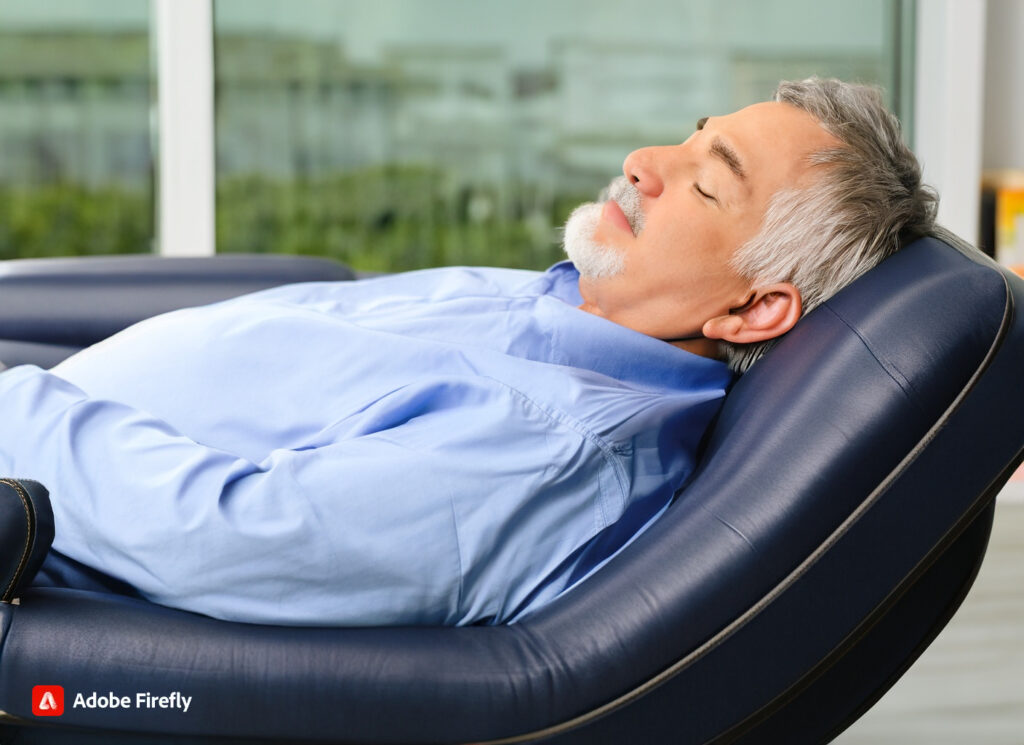
Prevention and Solutions
To minimize the health risks associated with sleeping in a recliner chair, follow these tips:
Choose Recliner Chair with Good Lumbar Support
When shopping for a recliner chair, prioritize models with excellent lumbar support. Look for chairs that offer adjustable lumbar settings to help maintain a healthy posture while reclining. Proper lumbar support can alleviate back pain and reduce the risk of stiffness.
Consider Your Medical Conditions
If you have specific medical conditions that may be aggravated by sleeping in a recliner chair, consult with your healthcare provider. Conditions like sleep apnea, acid reflux, or certain respiratory issues may require alternative sleep solutions.
Adjust the Recline Angle
Be mindful of how far you recline your chair, especially when sleeping. Avoid reclining the chair too far back. Avoid extreme reclining angles, as they can strain your neck and back. Instead, find a comfortable midpoint that supports your body without causing discomfort.
Use Supportive Pillows
To improve your recliner’s ergonomics, use pillows to provide additional support. A pillow under your neck can help maintain proper neck alignment, while one under your knees can ease pressure on your lower back and enhance circulation in your legs.
Take Short Breaks
Make it a habit to get up and move around every few hours, especially during extended periods of recliner sleep. Stretching and walking briefly can help prevent stiffness, improve circulation, and reduce the risk of blood clots.
Conclusion
While the Recliner is like a throne of relaxation that may seem like the perfect spot for a nap or a night’s rest, there are secrets lurking beneath those cushioned seats. From neck pain to poor circulation and the risk of falling. They may not be suitable for individuals with specific medical conditions, so moderation and awareness are key.
Sleeping in a recliner chair can be made more comfortable by choosing one with good lumbar support, adjusting the recline angle carefully, using supportive pillows, and taking breaks to move around.
Beds are the ideal choice for restorative sleep, but adjustable beds or inclined wedge pillows can be alternatives for addressing specific health concerns. To promote good sleep health, it’s advisable to use recliner chairs in moderation and consider alternative sleep solutions that provide the necessary support and comfort for a restful night’s sleep. Informed decisions lead to better sleep and improved overall well-being
Frequently Asked Questions
Is it true that recliners can affect my posture even when I’m not using them for sleep?
Recliners can indeed impact your posture, especially if you spend a lot of time in them. They may encourage a more slouched position, which can lead to poor posture over time.
I’m a relatively young person. Do I still need to be concerned about the dangers of sleeping on a recliner?
Age isn’t the only factor to consider. The risks associated with recliner sleep can affect people of all ages. It’s essential to be aware of potential issues and use recliners in moderation.
Can using a recliner for a short nap be harmful too, or is it primarily a concern for overnight sleep?
Even short naps in a recliner can pose risks, especially if you’re in an uncomfortable or awkward position. It’s best to be mindful of your posture during all recliner use.
Can using a recliner for sleeping affect my overall sleep quality even if I don’t experience immediate discomfort?
Yes, it can. Recliners may not provide the ideal sleep posture needed for restorative sleep. Over time, this can impact your overall sleep quality and well-being.
Can using a footrest in a recliner chair for sleeping lead to any health problems?
While a footrest can be comfortable, it’s essential to ensure it doesn’t impede circulation or cause discomfort in your legs. Adjust the footrest position to prevent potential issues.
